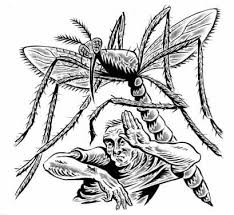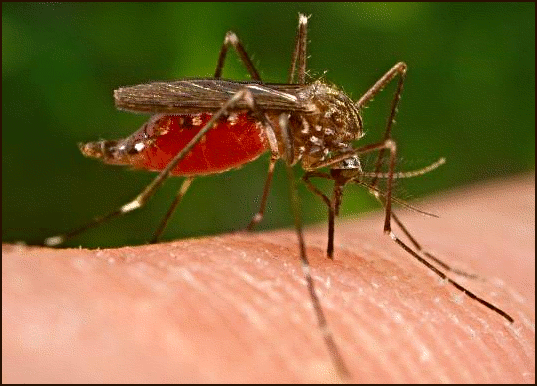This week’s Mindfulness Challenge is the ‘Seven ‘Minute’ Itch’.

breath by breath
I have been reading the book ‘Breath by Breath: The Liberating Practice of Insight Meditation’ by Larry Rosenburg. He tells a wonderful story about being bitten by a mosquito while under the instructions to stay perfectly still:
At the beginning of one morning sitting, after a minute or so, I was bitten by a mosquito. This is a rather ordinary event, but it marked a major turning point in my practice. I am actually deeply grateful to that Korean mosquito. She was doing her job, of course. She was being a mosquito. But the bite really started to itch. I didn’t think I could stand it. There I sat, with fifty-eight minutes between me and the opportunity to scratch.
Right practice, of course, was just feeling the sensation. Forget about mosquitoes, the nature of insect bites, the word itch. Just feel exactly what the sensation is on your skin at that moment. The breath is very helpful in that regard. It helps you stay with the object; it nourishes your mindfulness; it cuts down on unnecessary thinking. You can also become absorbed in the breath to take your mind off the powerful urge to scratch.
It’s quite varied, this thing we call a mosquito bite: if you look closely, you see that the itch isn’t one feeling but a whole host of feelings, coming and going. It’s not solid; it’s a process. It grows more intense, then less so, disappears altogether for a few seconds, returns with a vengeance.
Sustained awareness perceives this truth; without awareness, it’s just a solid sheet of itch. Awareness also sees that the itch is impersonal. It comes from nowhere, goes to nowhere. You don’t own it and it isn’t you. It’s a phenomenon of the natural world. You’re a part of that natural world. It begins to lose its power when you see what it really is.
But if you lose your mindfulness for even a second, all kinds of thoughts rush in: “Who made this rule about not moving anyway? Who are they to tell me not to move? I hate this practice. I hate this country. I am just going to go ahead and scratch. They’ll have to find a way to deal with it…”
Those thoughts kept rushing in for me- it was a difficult morning- and at some point I had a major realization. I was a highly educated man, had been a college professor; I’d read a great many books, even dharma books, but I was making this itch into one of the worst catastrophes in human history. If someone had said, “It could be worse. You could be in a Stalinist labor camp”. I would have said, “What do you mean? This is worse than any torture Stalin inflicted”. My mind had become that deluded, all from- to say the least- a rather trivial stimulus. Imagine what it would have done with a more serious problem.

mosquito sketch
If you go back to the original feeling, as I did when I was mindful, it still isn’t pleasant: nobody wants to itch. But you eliminate an enormous amount of suffering by concentrating on the suffering that is actually present instead of creating more with your thinking. It is the difference between discomfort and torment.
Everything begins with feelings, all the mind states that people get themselves into. The closer you are able to get to the original sensation, the more clearly you can see it.
Start small. Liberate yourself from mosquito bites and see where that might lead (p.61-62).
So, this week… whenever you experience physical discomfort, practice mindful breathing. If your mind creates many stories around the ‘itch’ or discomfort, backtrack your thought process to the actual sensation and stay with it through focusing on the breath. Let us know how you get on!



I had been particularly struck by this chapter which I was reading last week. In my practice on Friday I realised that I was itching and caught my hand in the process of automatically moving towards the itch to scratch it. Instead I thought if Larry Rosenberg could sit for an hour with a mosquito bite then I could surely manage 30 minutes with a minor itch. What an experience! Once I let go of identification with the itch, I could become interested in it rather than aggravated by it. I watched the sensation ebb and flow, now a tickle, now an exquisite pain, felt the heat radiate from the site of the itch and the subsequent chill round about. It became my mindfulness support. I have tried to do something similar with pain but with less success – I can manage to remain unidentified with and interested in the pain in my knees for about 10 minutes but then it very definitely becomes MY pain and I have to shift position. Have you tried this?
Christie…I have not tried it with pain, but have with the ‘itch’ and have had similar experiences to you. Once I even had the experience of forgetting about the itch that I had been using as a support–until I realized that I was scratching it! Doh’… such is the condition of the mind… I am actually feeling quite itchy right now… maybe I should go meditate and ‘practice’… 😉